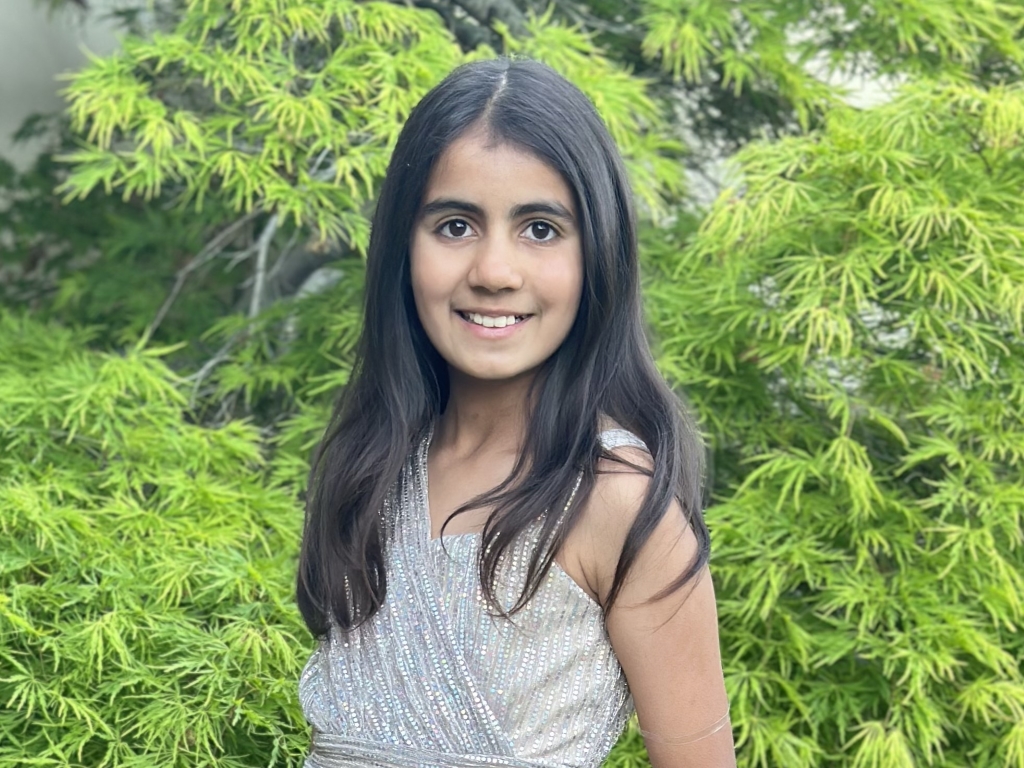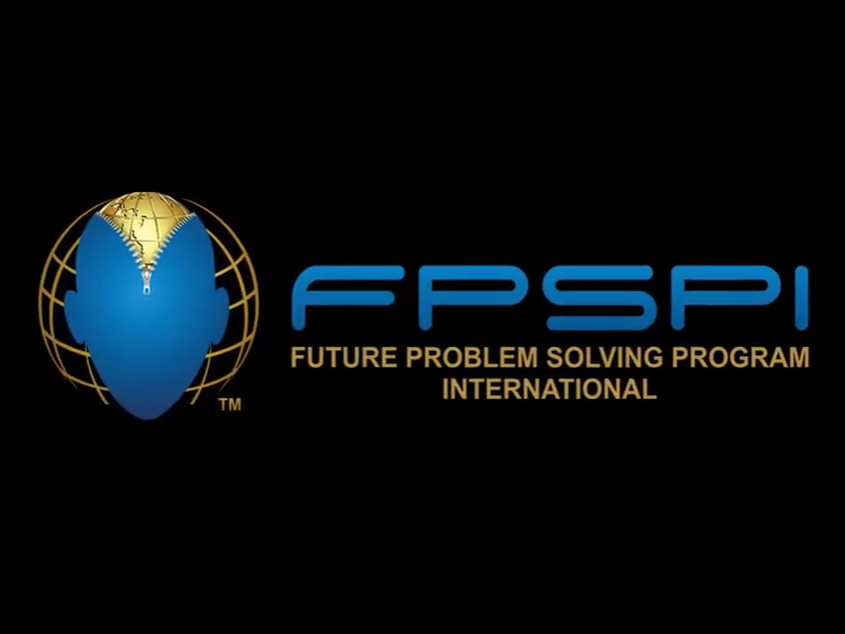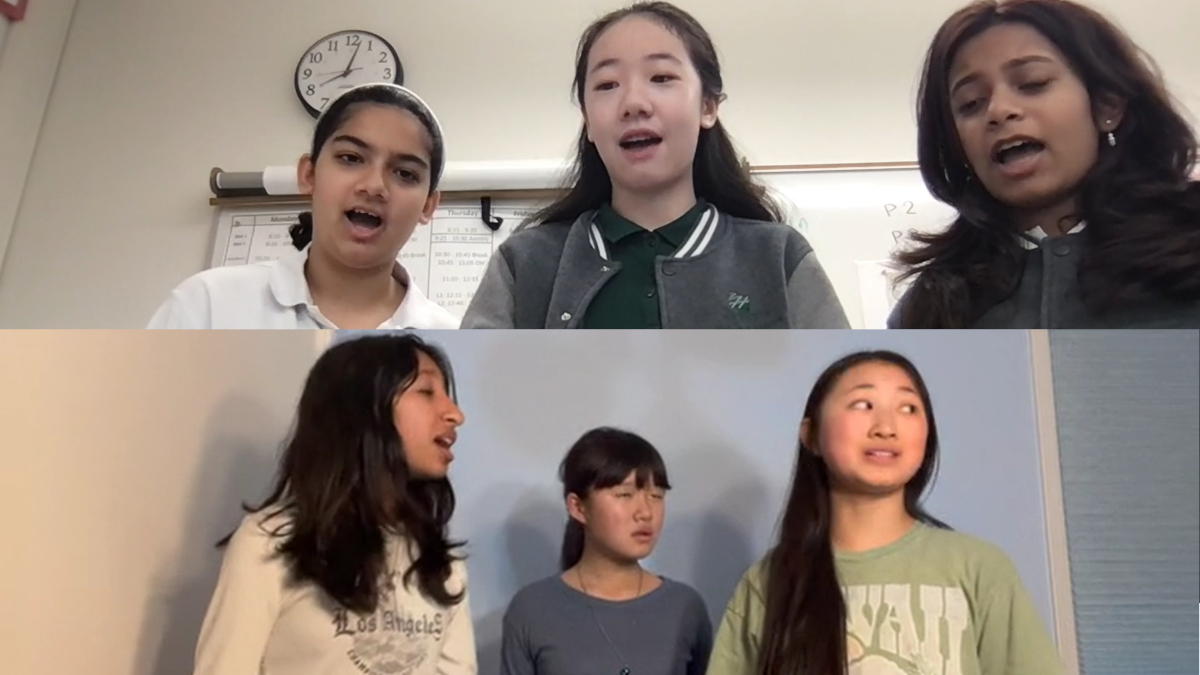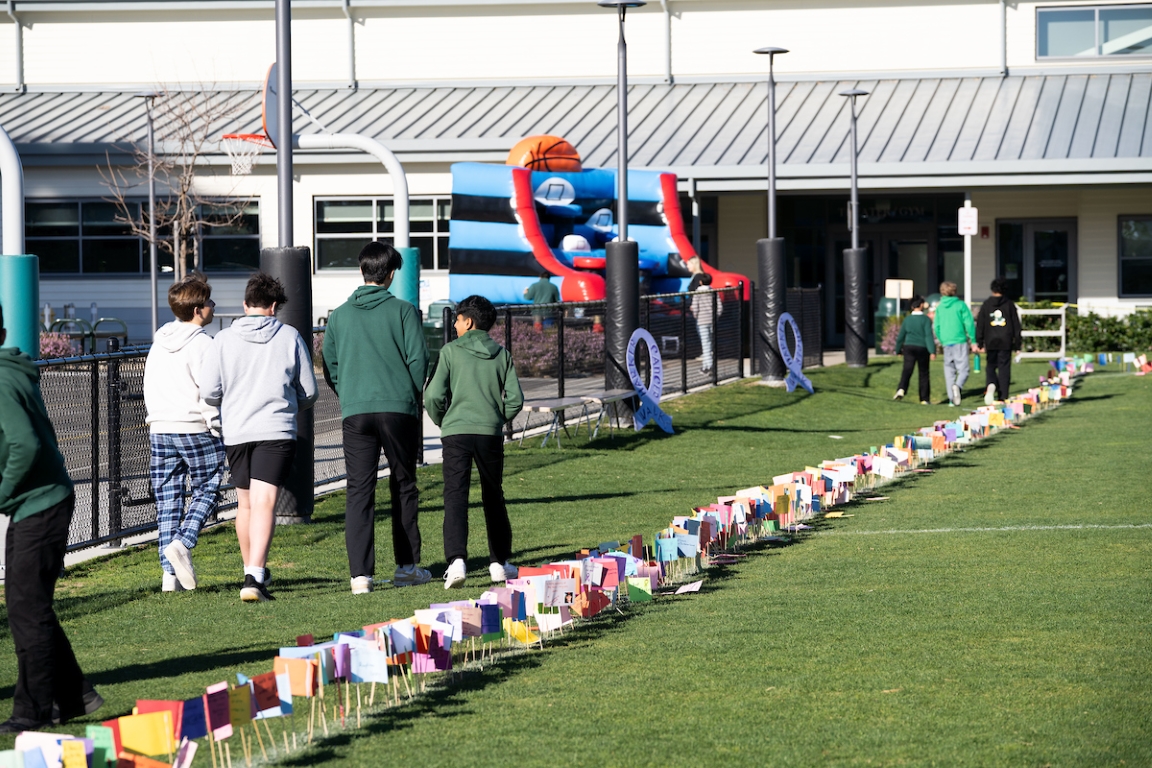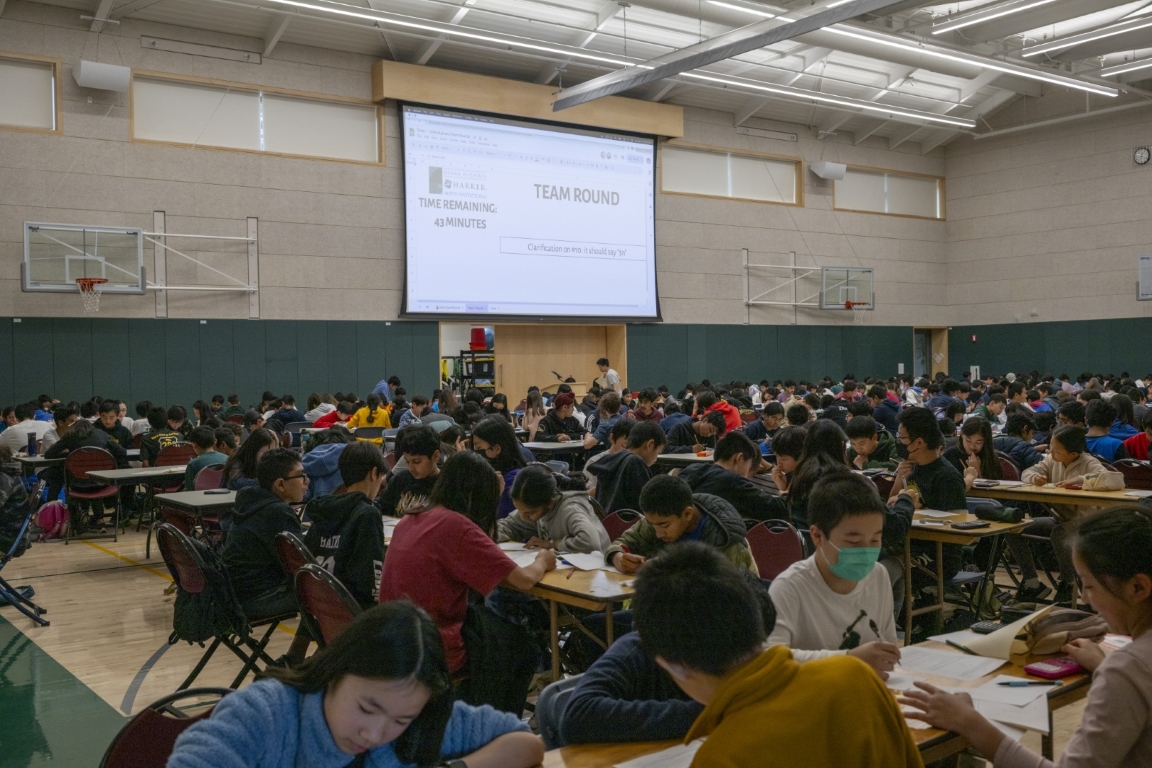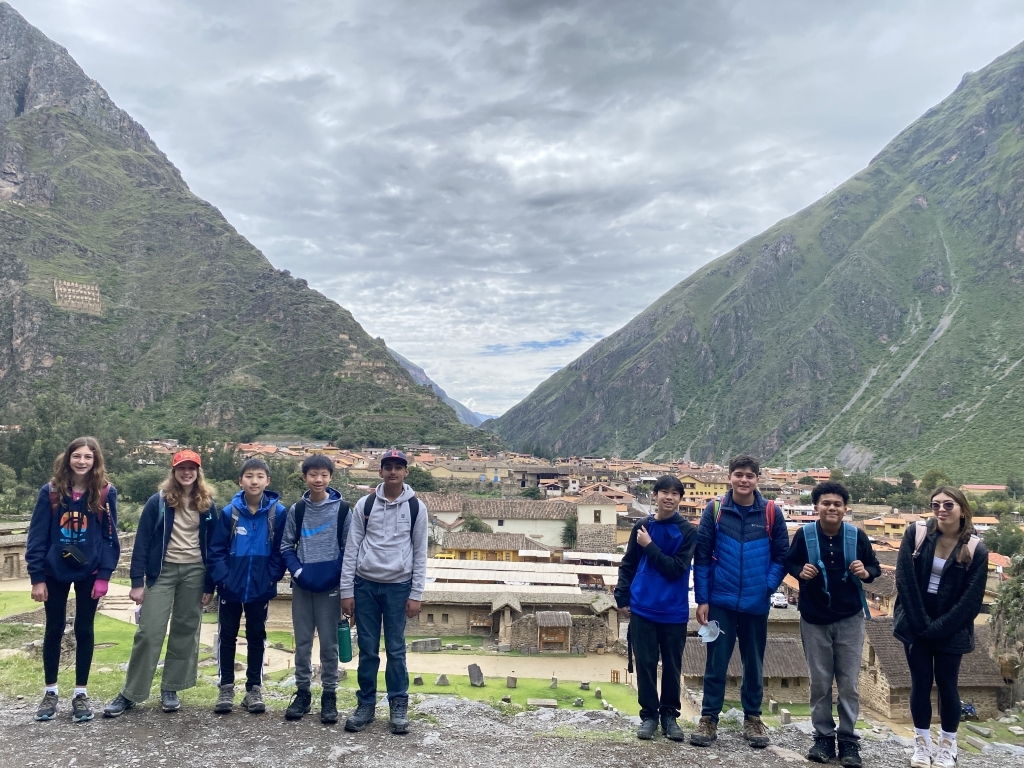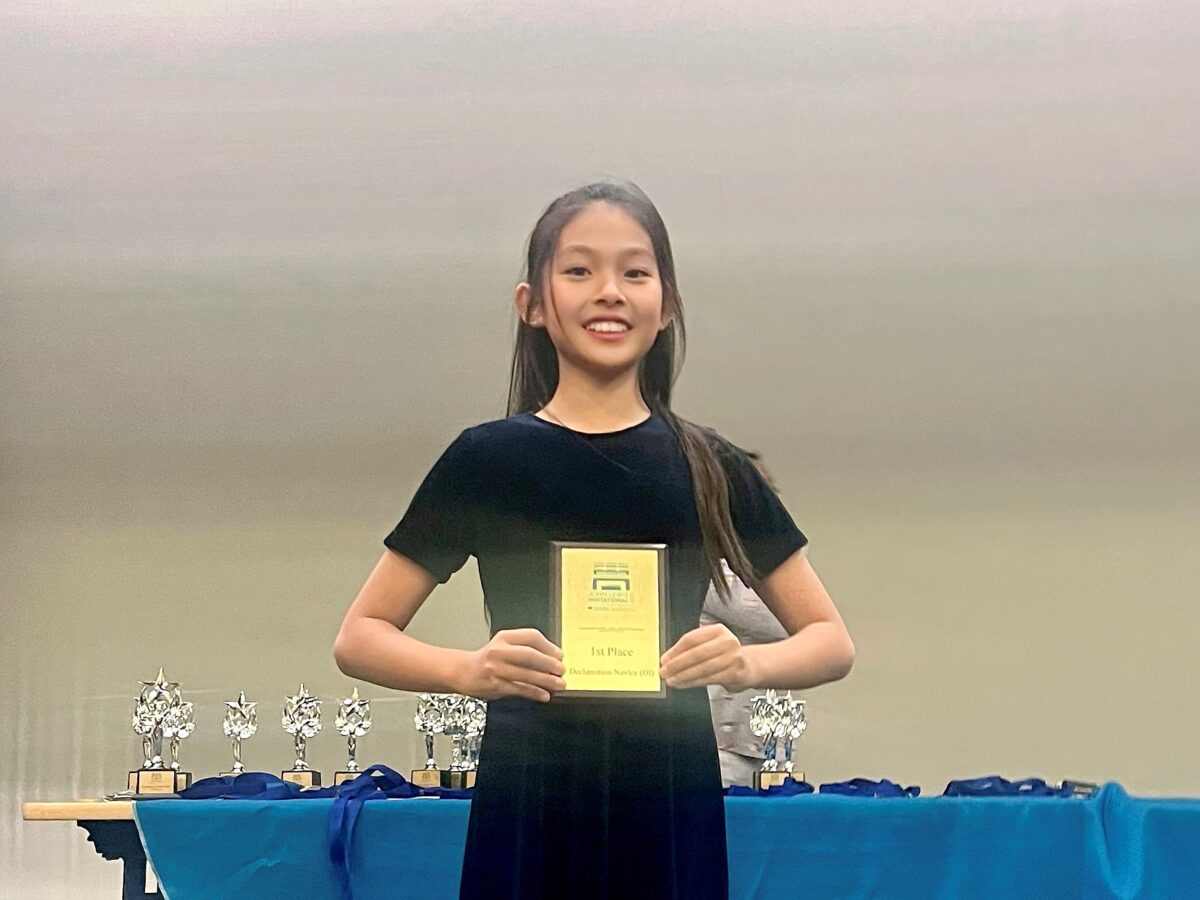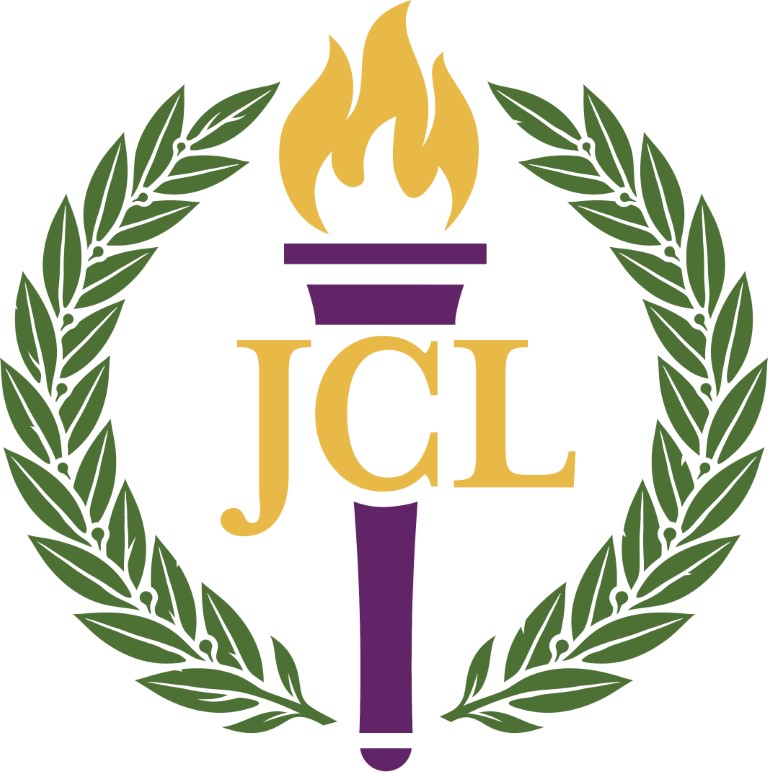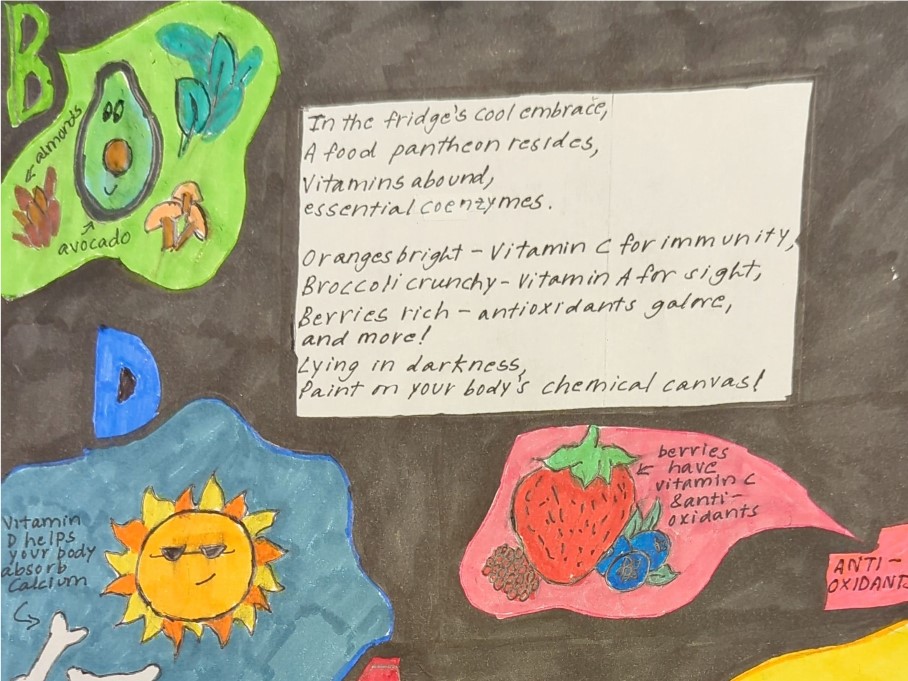At last month’s State Latin Convention, held by the California Junior Classical League, middle school Latin students collected a huge number of awards and recognitions.
Middle School
Sixth grader places second in classical singing audition
Last month, Valentina Mottl, grade 6, placed second in the Classical Auditions held by the Bay Area chapter of the National Association of Teachers of Singing.
Future Problem Solving competitors qualify for internationals, take top spots
Several Harker students qualified to compete at the international level, and more earned top spots at the state finals of this year’s Future Problem Solving (FPS) competition.
Two Harker teams named winners in Hamilton Education Program competition
Two groups of Harker muddle schostudents were named winners in the Hamilton Education Program’s online competition, in which middle and high school students wrote and performed songs based on their own historical research.
Hundreds attend 2024 Cancer Walk to benefit Camp Okizu
An estimated 600 members of the Harker community headed to the middle school campus on March 14 for the 2024 Cancer Walk.
24th Diana Nichols Math Invitational draws record attendance
The 23rd annual Diana Nichols Harker Math Invitational for grades 6-8, held Sat., March 9 was a highly successful event with a record 20 schools and 405 contestants.
Grades 7-8 students explore culture, service on inaugural Peru trip
Over the February break, grades 7-8 students visited the Peruvian town of Ollantayambo to learn more about the area’s culture and traditions as well as find new ways serve marginalized international communities.
Sixth grader places first in debate tournament
Fiona Yan took first place in the declamation novice category at the John Lewis Silicon Valley Urban Debate League Invitational.
Middle and upper school students claim many awards at CA JCL Convention
Middle and upper school Latin students collected dozens of awards at the California Junior Classical League’s fall convention.
Eighth grader takes first place in illustrated poem contest
Eighth grader Shreyas Karnam was named the first-place winner in the grades 6-8 category of the National Chemistry Week Illustrated Poem Contest.

